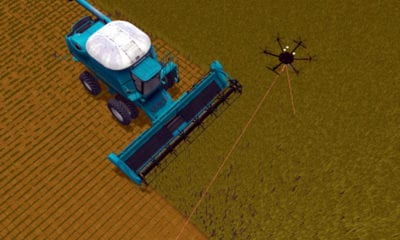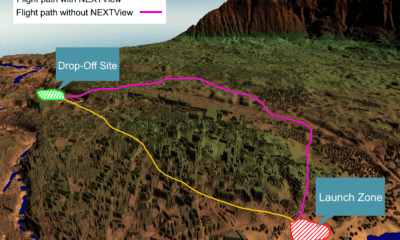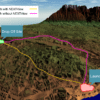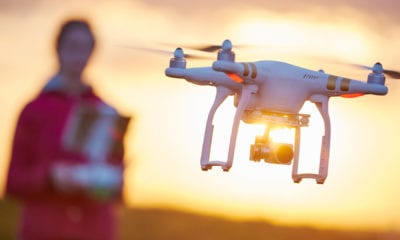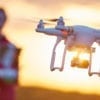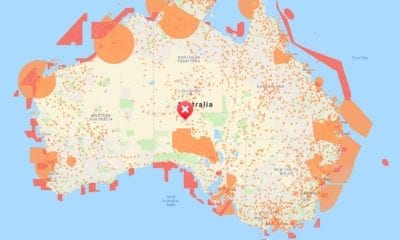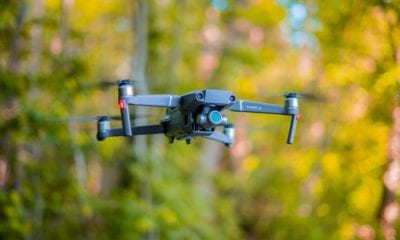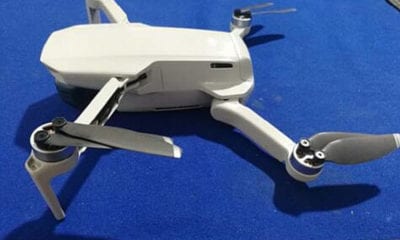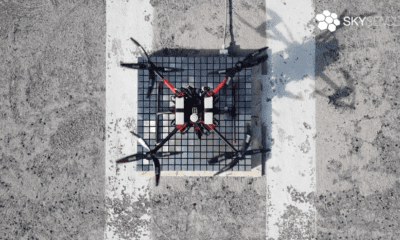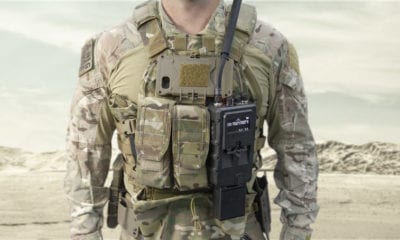New Drone Standards Will Spark Economic Revolution in UK, Says BSI Chairman
Businesses and industries across the United Kingdom are waking to a new era in which drones could change the way they live and work. At an event held in the House of Lords recently, the British Standards Institution have set in place a future for the UK that realise the potential of UAVs in the air, in the sea, on land and in space.
Founder and Chief Executive of the BSI Committee responsible for Drone Standards of the British Standards Institution (BSI) and Drone Major Group, Chairman Sir David Brown attended and spoke at the event, and explained how drones can benefit the UK economy. “BSI is playing a pivotal role in supporting the exciting global future for drones through its work on standards for Unmanned Aircraft Systems. Standards accelerate innovation, boost productivity and enable trade, while promoting safety and consumer protection,” he said.
The event was sponsored by Field Marshal The Lord Guthrie of Craigiebank GCB, LVO, OBE, DL, and politicians including Aviation Minister Baroness Sugg, and other senior stakeholders in the drone industry, including manufacturers, users, service providers, economists, academics and media were also present.
The new standards are the result of several years’ work and collaboration, and will be a turning point for the UK UAV industry. Robert Garbett, in his role as Chairman of the BSI Committee on Drone Standards, stated in a speech that, “The development and adoption of the first quality and safety standards for the drone industry will make 2018 a pivotal year for an industry which is set to become a global phenomenon.

Robert Garbett, chairman of the BSI Committee on Drone Standards | Business Standard
“It is the year when British and world standards will be crystallised, energising the industry, and enabling it to meet its full potential to the benefit of UK plc, and indeed economies worldwide. Drones, empowered by standards that can be trusted and relied upon are the key to many of our economic, transport, security, environmental and productivity challenges of today. They will open up new avenues to innovation that we can only begin to imagine!”
The drone industry is growing at a rapid rate. With nearly 4 million drone sold commercially in 2015, one report states that number is forecast to grow to 18 million by 2023. Industries as diverse as delivery, agriculture, medical, construction and marine are already developing and using drones in many capacities.
“Two years ago drones were forecast to spawn a $100 billion industry by 2020. But today the opportunities are perceived to be even greater than this since such projections were based upon available data at that time which predominantly focused on the air industry, and we define the entire drone industry as covering surface, underwater, air, and space. If you look at the entire picture the figures are much larger and growing faster than anyone expected. If you then forecast the impact of integrating drone technologies across these environments, the figures will take on an ever more exciting dimension,” Garbett said.
The new standards open up new possibilities for these industries as well as others.
As Garbett explained, in transportation, use of drones for delivery on air, land and at sea would reduce the need for expensive infrastructure projects, easing traffic congestion, and reducing pollution in towns and cities. “In addition, this transport revolution will allow workers to live further outside the cities, reducing the pressure on housing and spreading wealth to the regions. In this single area alone, the benefits that drones bring are compelling,” he said.
Along with the recent announcement by the UK Government statement that driverless cars will be introduced by 2021, “this reality is gaining momentum and will have a widespread positive impact on each one of us.”
This is all well and good but there are still a lot of challenges to be overcome. Drone networks such as the 4G IoT network being developed by Vodafone in Europe, or the neural DroNet network being developed by researchers in Zurich, bring that reality much closer. EHANG, Volocopter and Passenger Drone are all creating autonomous air taxis that might make use of networks such as these. In the meantime, Garbett says, “economic and safety arguments for the complete adoption of passenger-carrying drone vehicles on our roads are overpowering.”
Construction, infrastructure, agriculture and medicine are all set to benefit from increased use of drone technology due to the new standards. Reductions in costs across the board are expected, with planning of time and resources being made more efficient in farming and in the business of constructing roads and buildings.
In medicine, more lives could be saved, by using drones to attend and scan scenes of collision, sending data to emergency services and then delivering medical supplies.
Marine applications have also been considered. Although industries associated with marine environments have been using ROVs to review and repair pipelines and oil rigs for decades, Garbett says they are “often neglected when calculating the growth of the drone market.”
The sector is incredibly well established and could benefit immensely, he says, adding, “As the range of applications for drones in the marine environment expands into exploration, environmental monitoring and intervention, the value to the industry is rapidly increasing. This is definitely a sector to watch as technologies create opportunities for businesses and investors.”
The hope is that investors will support the new UK drone standards by funding research and development to enable the industry to break through the barriers such as BVLOS, and integrating drones safely into airspace. The adoption of systems that can move from air to land to sea and beyond (like this multi-environment UAV that can fly in the air and dive into water being developed in the US) would also be desirable.
All in all, Garbett sees great potential for drone industries globally, particularly for the UK, “where the combination of our intellectual capital – our technology, engineering, innovation, governance, and above all, our development and support of high standards – is world class.”


